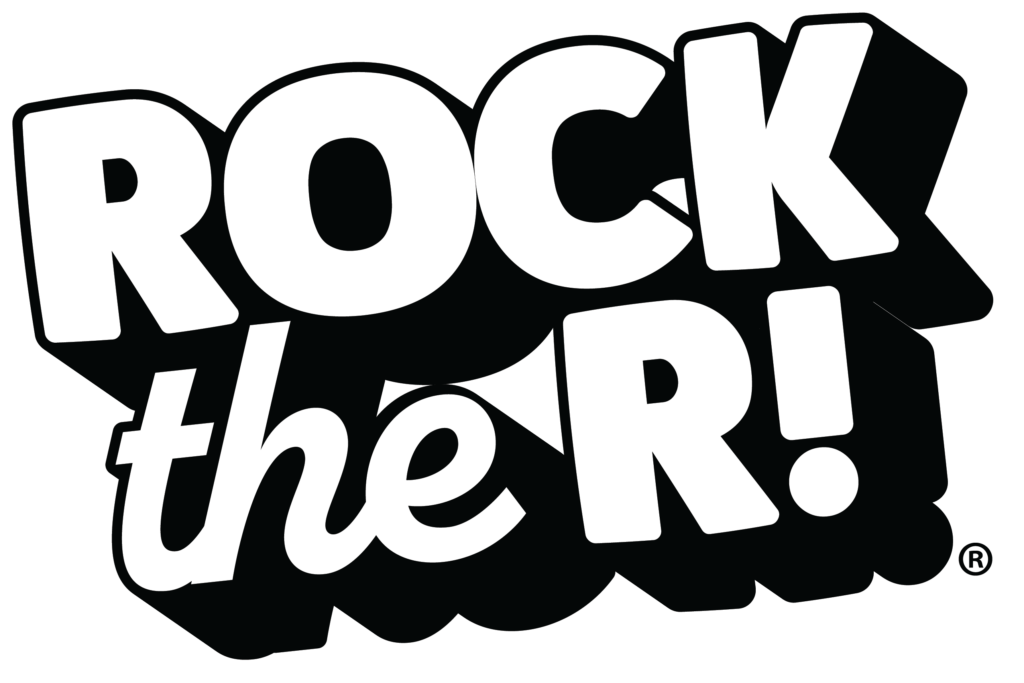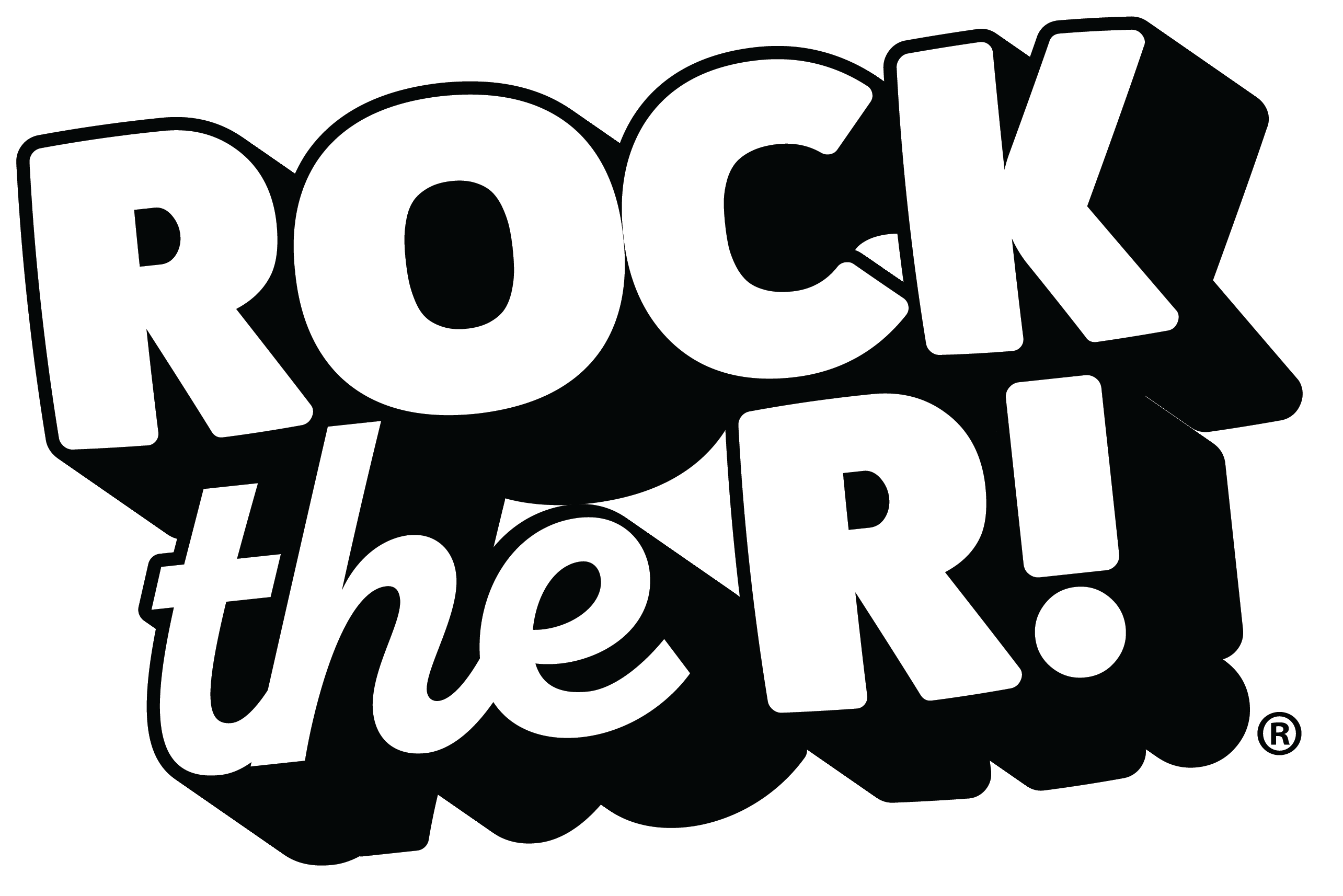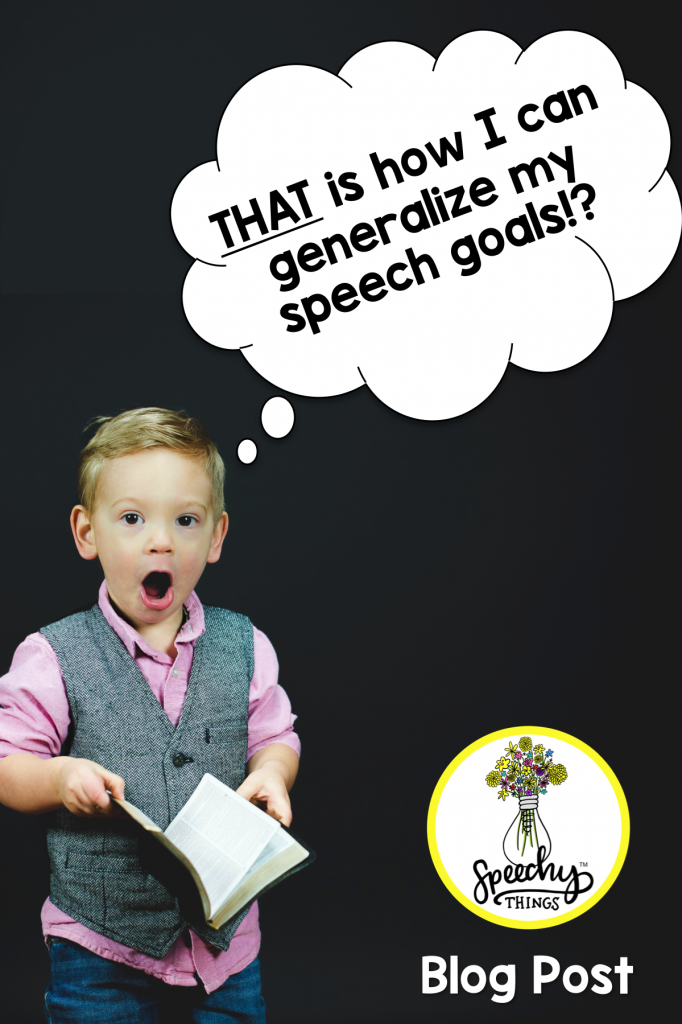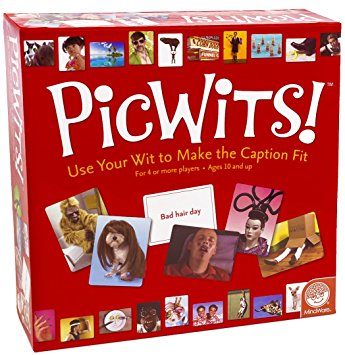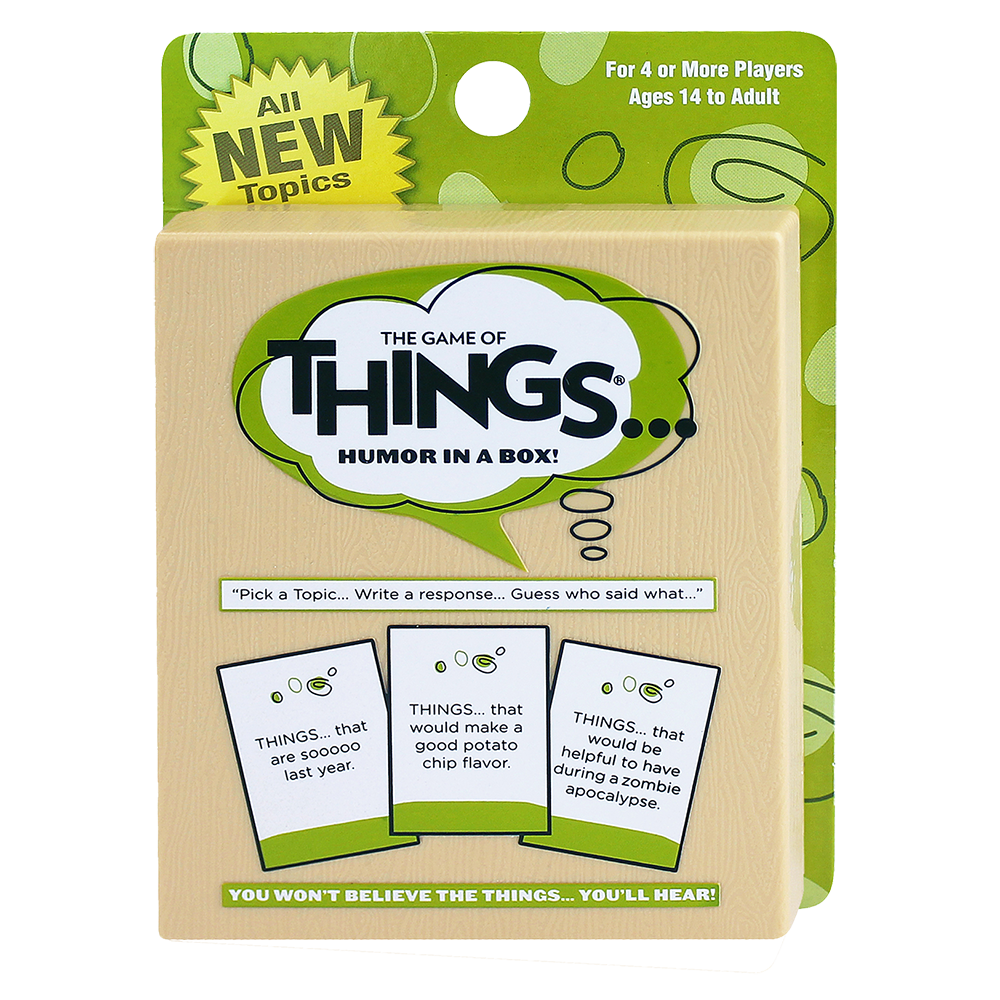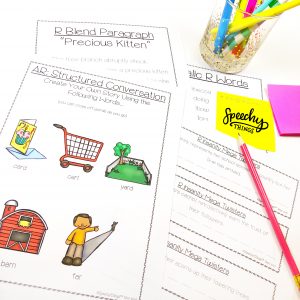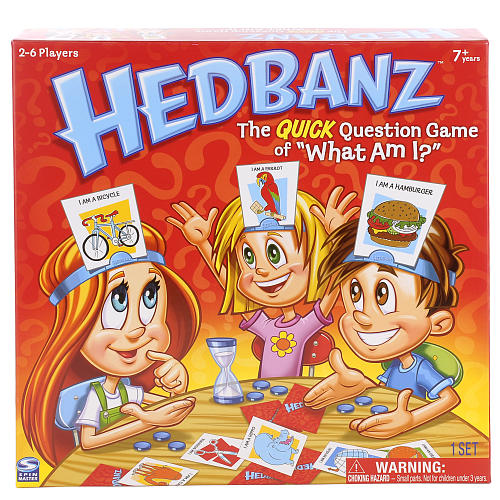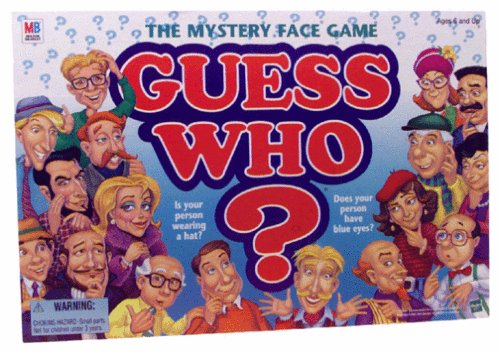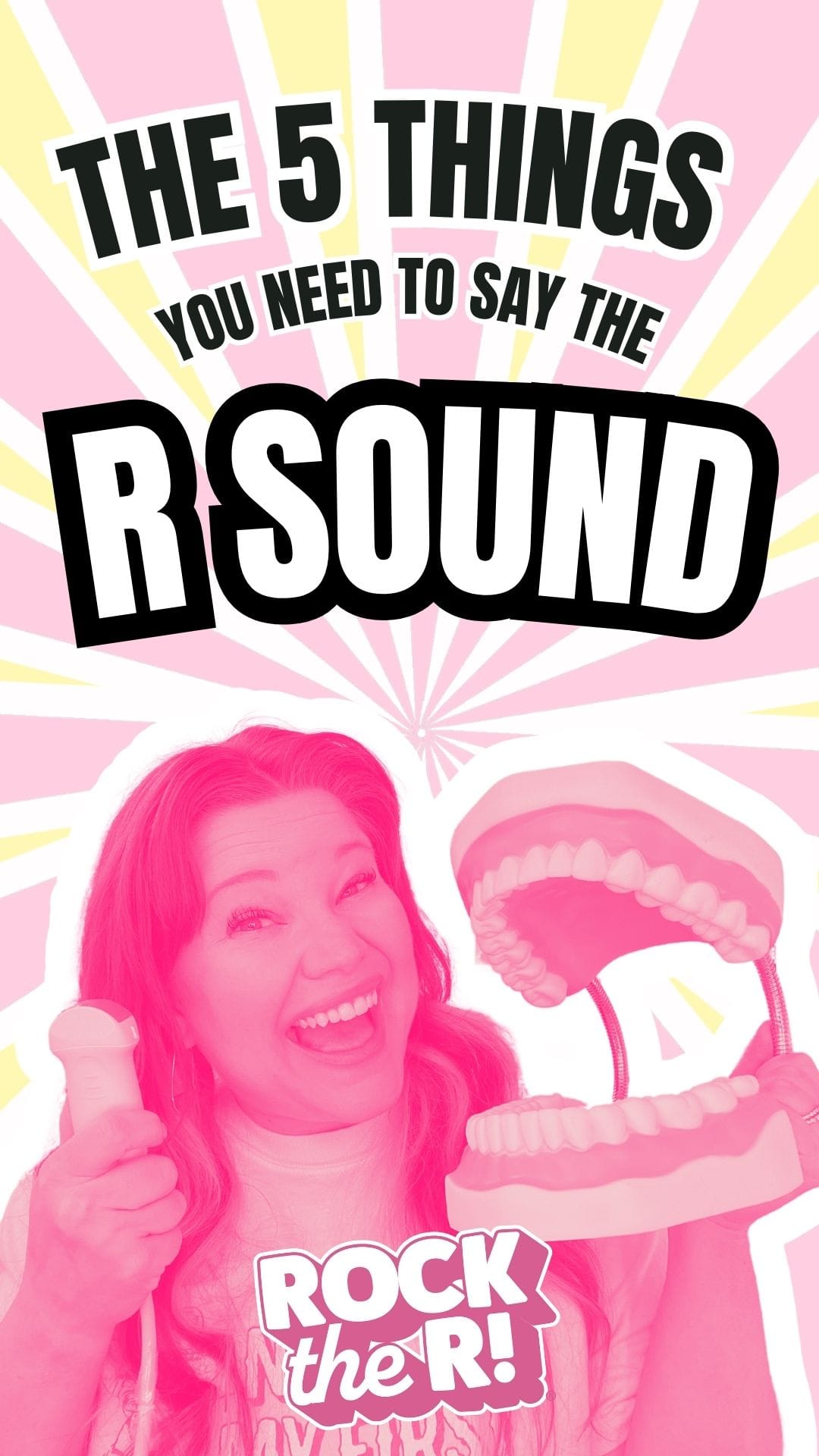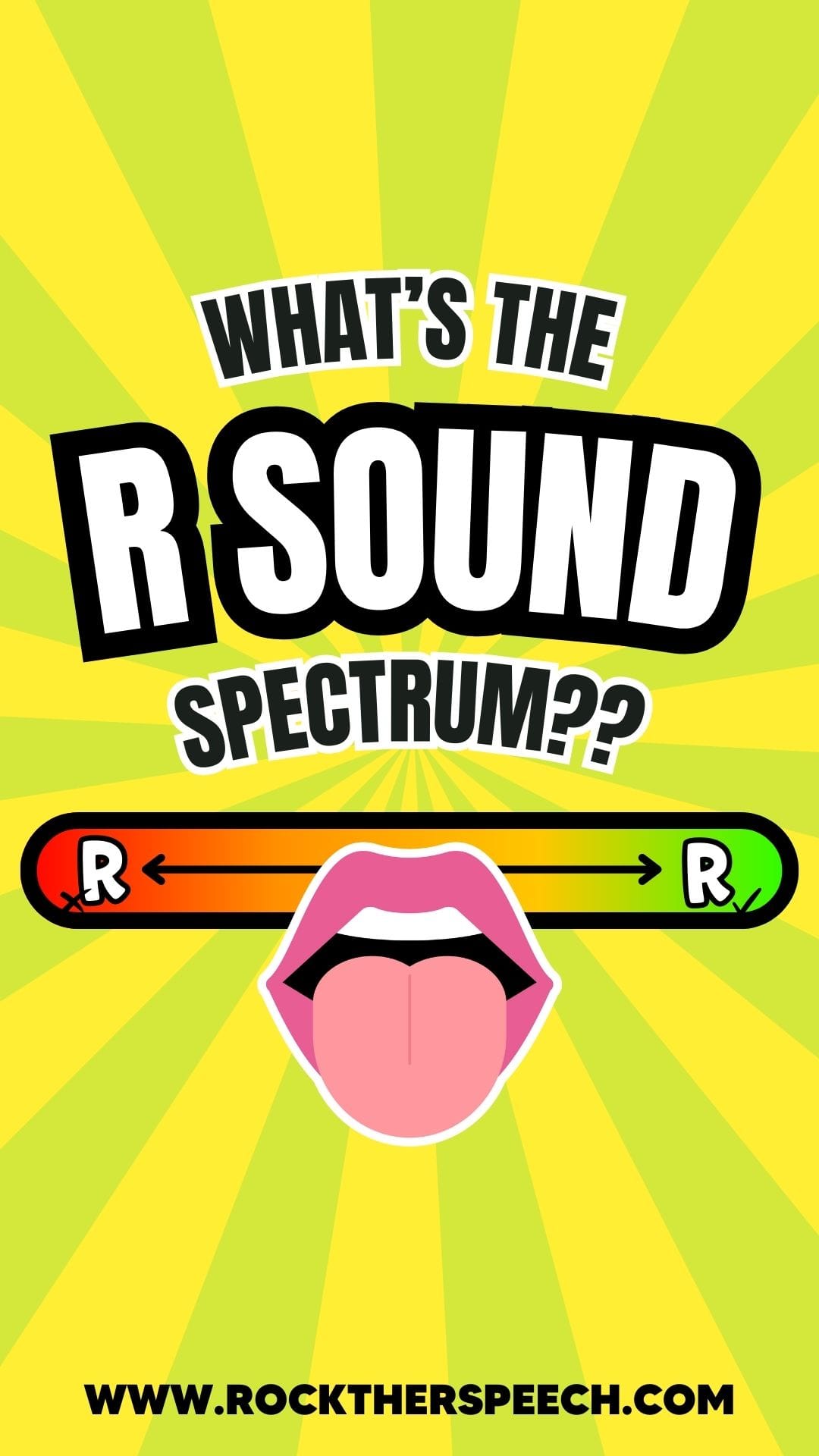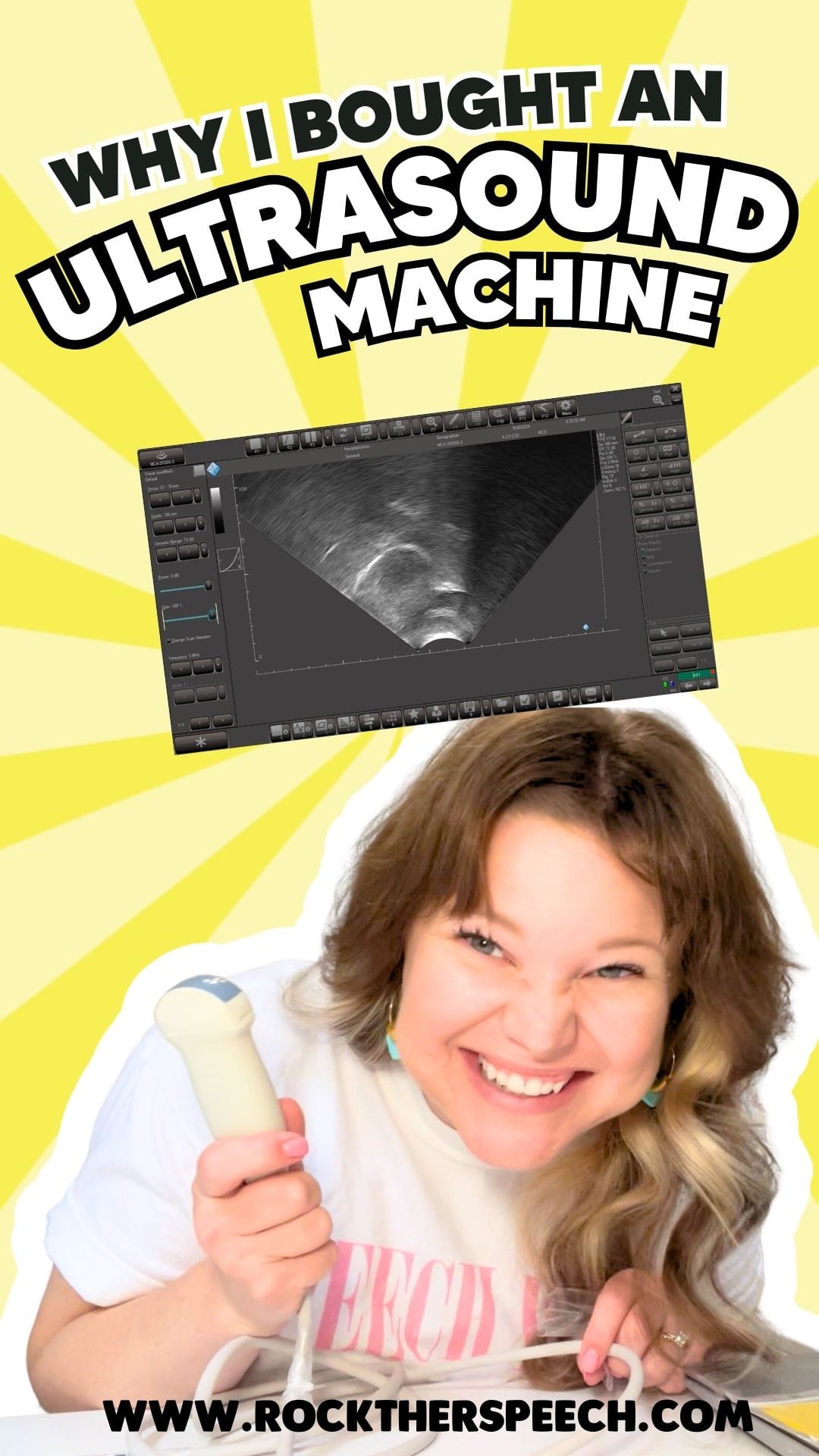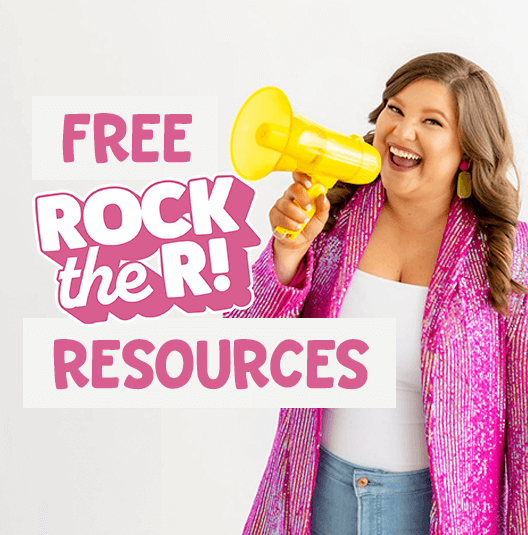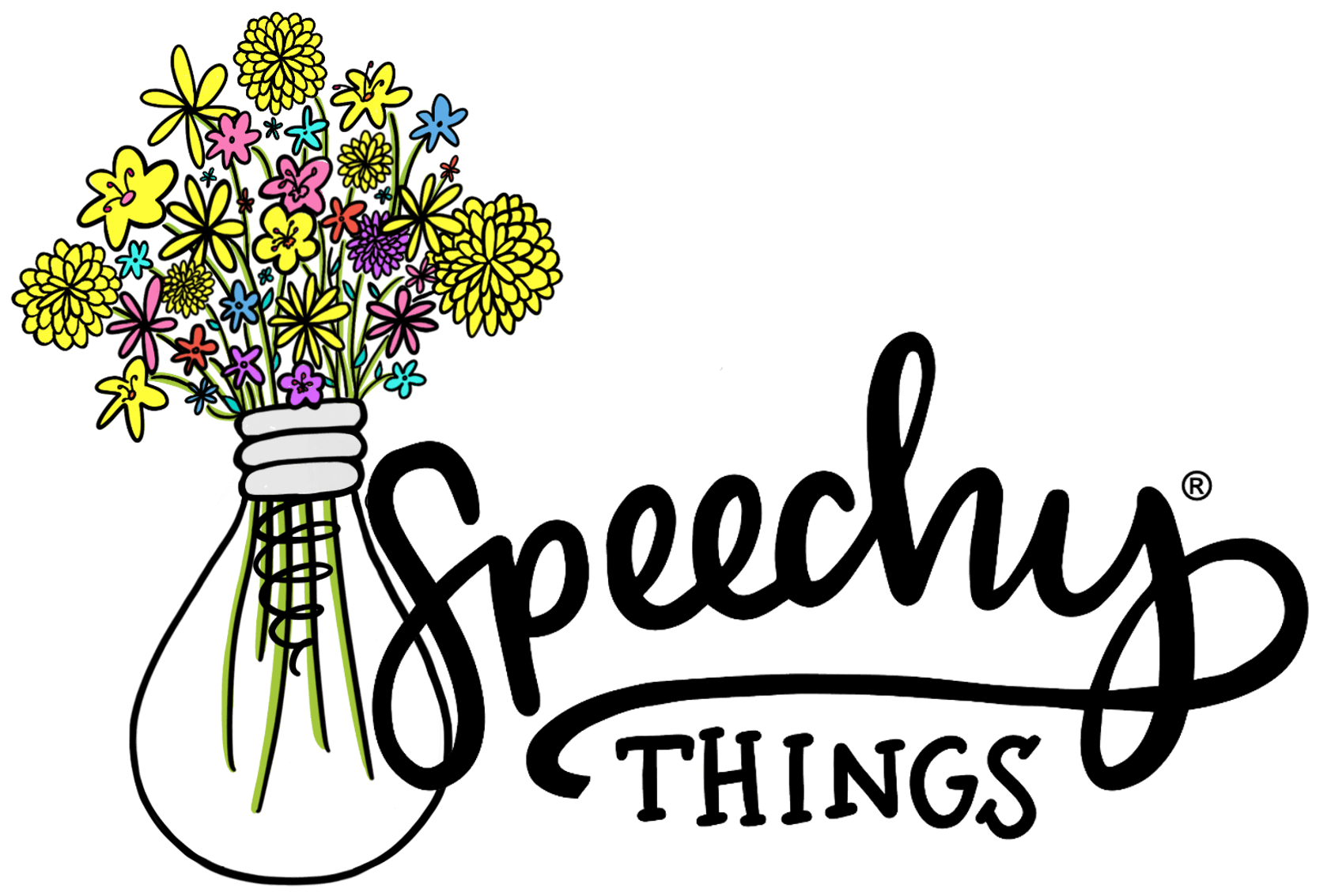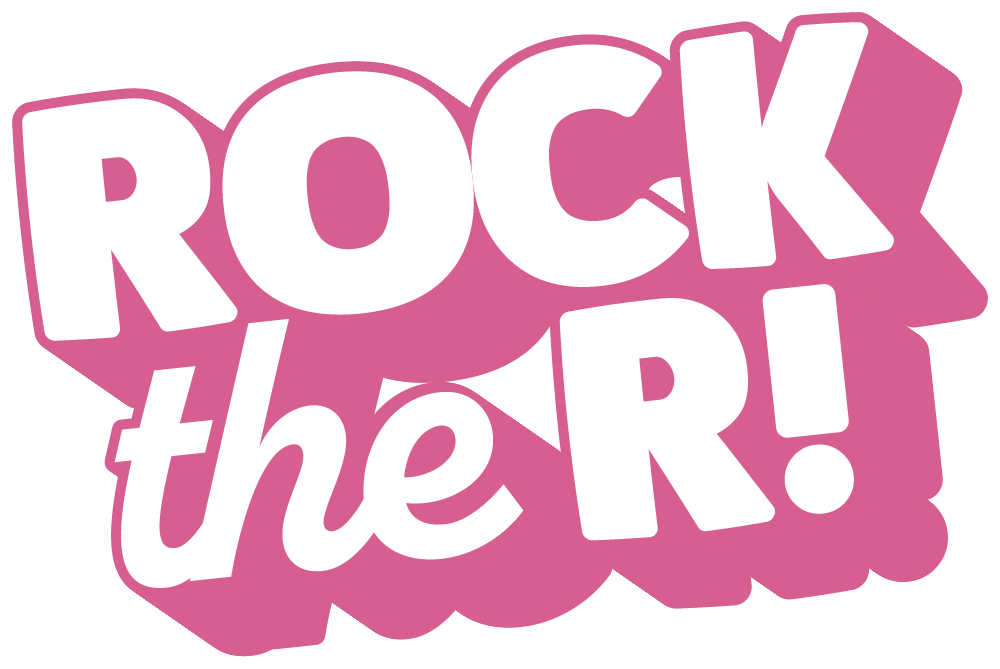.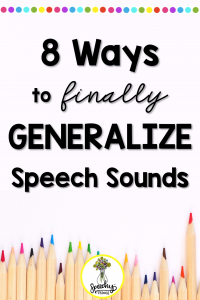
.
.
Generalization! It is so exciting. The kid has worked so hard in speech therapy to learn their new sound and you’ve worked so hard to teach it to them. But now we have to use that artic placement or phonological skill ALL the time!? We have to GENERALIZE!? Sheesh.
I once heard speech therapy explained like this- imagine that every time you say an /s/, you have to pronounce it as a /f/. That is what we’re asking our kids to do: totally rethink how they speak. Or should I say, “That if what we’re afking our kidf to do: totally rethink how they fpeak?” That’s HARD. That is what we’re asking them to do when we are working on generalization.
Well, have no fear! I’ve compiled a list of my favorite games and activities to use with my kiddos who are about ready to generalize and fly the proverbial “speech nest.” First up, we have the older kiddos (which, of course, means around age 6 and up- you know, ancient.)
.
1. PicWits
I love games like Picwits! It’s filled with cute, interesting, and goofy pictures that keep things fun and provide plenty of material for discussion. It comes with caption cards (which you can strategically choose based on phonemes. I am a big fan of bending the world to my speech pathology-fueled will). Kids get to pair the photos and captions how they see fit. Laughs are all but guaranteed.
Bonus: I often find creating natural situations for heavy “th” carryover can be tricky. This game is my go-to. Have your kiddo talk you through which card they are choosing. “The one with the dog wearing the wig.”
.
2. Conversation Cards
I have a box filled with conversation cards. This mini version of The Game of Things is fun for older kids! Not only do they break the ice and help new kids get comfortable- they are great for carryover! (By the way, if you need conversation cards for kids who have more severely impacted language, you can click here for a great option. They have been SO helpful for my students.)
Also- check the dollar spot at Target. I cannot be near that heavenly place without wondering through endless bins of adorable cheap things. Every once in a while they have some AWESOME conversation / question cards.
To summarize: I love conversation cards. And the dollar spot. And the dollar spot’s conversation cards. And Target in general.
.
3. Reading Out Loud
Tongue twisters are one of my favorite ways to add some challenge and giggles to therapy sessions at the generalization level! The resource pictured above has phoneme-specific tongue twisters, phoneme-heavy paragraphs, and pictures the kids are required to put into a story- all are fun for scaffolded practice!
Reading out loud, of course, can also be their favorite book… or it can be a book strategically chosen by you (where my interdental lispers at?).
For even more fun- find out one of your kiddo’s favorite TV shows and print off the script! (Perhaps pre-read to keep it all G rated, of course. Silly Sheldon.)
No matter which way you slice it- reading out loud is great practice, it’s functional, and it’s perfect for home programming.
READ READ READ. I hear it makes you smarter.
.
4. Sing!
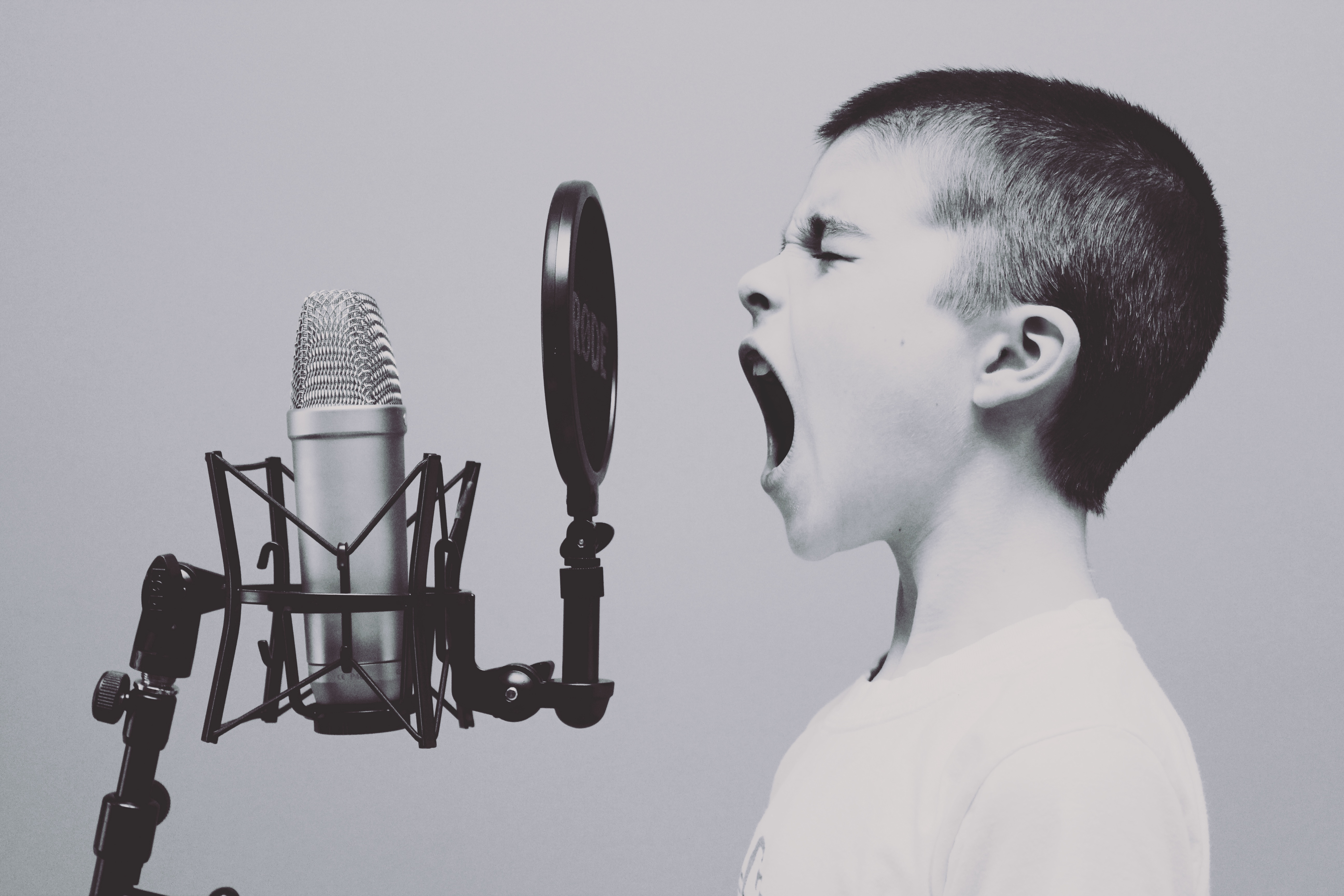
Photo Credit: Jason Rosewell via unsplash.com
Find out your kiddos favorite songs and SING! We are seriously all about fun and function here at Speechy Things. Enjoying music is a huge part of being human. Can you imagine a world where EVERYONE doesn’t passionately join in when Bohemian Rhapsody comes on? Me neither and I don’t wanna.
Tay Swift. Biebs. Demi. Whatever. Just do it! And feel free to check out my previous blog discussing the virtues of Anytune– the music “slower downer” to help make your little friend’s soulful rendition more doable.
.
5. Headbanz
Headbanz is an obvious choice, I know. Use it with the original cards. Use it with a fun deck. It’s an instant classic for every SLP.
.
6. Guess Who
Guess Who is yet another obvious classic, I suppose. But this game is so versatile! I have found success adapted it to specific phonemes by requiring certain wording for what questions everyone asks. For example, my R kids have to word their question as “Does your person have…”.
.
7. Bear Hunt
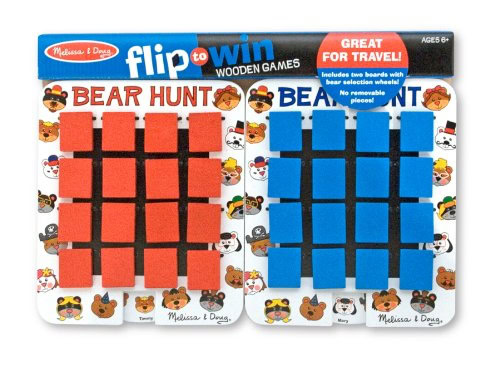
Let me preface with this: I cannot find this for sale online and it. is. a. TRAGEDY.
I am fortunate to have access to this gem thanks to a very nice coworker. If you come across one- snatch it up! And then let me know where you found it!
Bear Hunt is Like guess who- but with a twist! It’s sturdy, portable, and adorable. We expect nothing less from Melissa and Doug, amiright? Great for R kids. Will buy immediately on sight if I come across another set. Meanwhile, I will stalk amazon and every garage sale in Texas until it is mine.
.
8. Choosing Toys for Younger Kids
Some kids need to MOVE and PLAY! Not a problem. Strategically pick out your toys to create opportunities for your target phoneme. For your phono kiddo who demonstrates fronting- choose a cat, name your people Gary/Katy, play with a kazoo- whatever! Just help your little friend out. This is a great tip for parents to try at home too. (True story: I once suggested a family name their new puppy to suit my client’s artic/phono goals… AND IT WORKED! They chose the name based on their speech goals- so awesome. No shame in my game.)
.
One of my favorite toy sets in our clinic is a bunch of jungle animals. (By jungle animals I mean there are tigers, lions, and monkeys …. but there may or may not also be a goat, camel, and flamingo casually thrown in. No biggie.) These random animals, along with my handy dandy object box (of truly random little toys) create so many natural opportunities for practice and carryover. Particularly for little friends who may be more shy about creating their own language and articulation opportunities. For those more outgoing kiddos- try a puppet show! Or play house!
.
After a long day of paperwork and drill, it can be so refreshing to get on the floor and PLAY!
.
To wrap it up…
I hope some of these suggestions were helpful for you. What I love most about each of these activities is that they are easy for families to do at home. Not only do they promote quality time, but it’s not another stinking word list or set of flash cards. It’s structured and FUN. The best of both worlds. If your families prefer something a little more tangible, you can always send home reading materials, conversation cards, or, again, those tongue twisters.
.
Let me know if one of your favorite carryover activities didn’t make the list. I would love to hear about it! If you want more therapy ideas and FREEBIES, be sure to sign up to be a VIP!
.
Speech on, y’all!

.
.
p.s. Some links in this post are amazon affiliate links. This means I may earn a percentage from any purchases you make. Thank you for clicking! It helps keep Speechy Things up and running!


